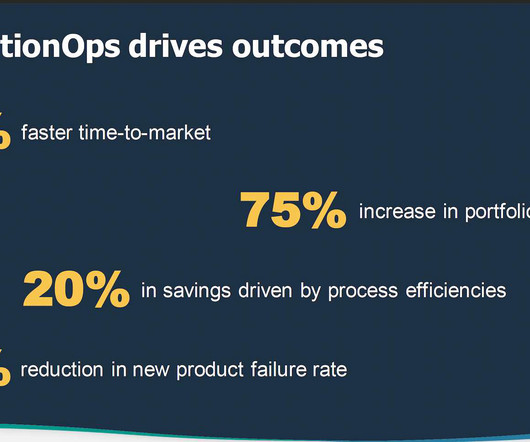InnovationOps: the Next Evolution of Innovation Management
Innov8rs
SEPTEMBER 19, 2023
This synchronized system is called InnovationOps, which marks the next phase of evolution of innovation management in large organizations- like DevOps that was coined in 2009, to operationalize software development. The Jobs in Innovation Management For starters, this does require a change in how we think about jobs.















Let's personalize your content